It is not the Revolution Society that Mr.Burke means; it is the Nation, as well in its original as in its representative character; and he has taken care to make himself understood, by saying that they have not a vote either collectively or individually.The Revolution Society is composed of citizens of all denominations, and of members of both the Houses of Parliament; and consequently, if there is not a right to a vote in any of the characters, there can be no right to any either in the nation or in its Parliament.This ought to be a caution to every country how to import foreign families to be kings.It is somewhat curious to observe, that although the people of England had been in the habit of talking about kings, it is always a Foreign House of Kings; hating Foreigners yet governed by them.-It is now the House of Brunswick, one of the petty tribes of Germany.
It has hitherto been the practice of the English Parliaments to regulate what was called the succession (taking it for granted that the Nation then continued to accord to the form of annexing a monarchical branch of its government; for without this the Parliament could not have had authority to have sent either to Holland or to Hanover, or to impose a king upon the nation against its will).And this must be the utmost limit to which Parliament can go upon this case; but the right of the Nation goes to the whole case, because it has the right of changing its whole form of government.
The right of a Parliament is only a right in trust, a right by delegation, and that but from a very small part of the Nation; and one of its Houses has not even this.But the right of the Nation is an original right, as universal as taxation.The nation is the paymaster of everything, and everything must conform to its general will.
I remember taking notice of a speech in what is called the English House of Peers, by the then Earl of Shelburne, and I think it was at the time he was Minister, which is applicable to this case.I do not directly charge my memory with every particular; but the words and the purport, as nearly as I remember, were these: "That the form of a Government was a matter wholly at the will of the Nation at all times, that if it chose a monarchical form, it had a right to have it so; and if it afterwards chose to be a Republic, it had a right to be a Republic, and to say to a King, "We have no longer any occasion for you."When Mr.Burke says that "His Majesty's heirs and successors, each in their time and order, will come to the crown with the same content of their choice with which His Majesty had succeeded to that he wears," it is saying too much even to the humblest individual in the country; part of whose daily labour goes towards ****** up the million sterling a-year, which the country gives the person it styles a king.Government with insolence is despotism; but when contempt is added it becomes worse; and to pay for contempt is the excess of slavery.This species of government comes from Germany; and reminds me of what one of the Brunswick soldiers told me, who was taken prisoner by, the Americans in the late war: "Ah!" said he, "America is a fine free country, it is worth the people's fighting for;I know the difference by knowing my own: in my country, if the prince says eat straw, we eat straw." God help that country, thought I, be it England or elsewhere, whose liberties are to be protected by German principles of government, and Princes of Brunswick!
As Mr.Burke sometimes speaks of England, sometimes of France, and sometimes of the world, and of government in general, it is difficult to answer his book without apparently meeting him on the same ground.Although principles of Government are general subjects, it is next to impossible, in many cases, to separate them from the idea of place and circumstance, and the more so when circumstances are put for arguments, which is frequently the case with Mr.Burke.
In the former part of his book, addressing himself to the people of France, he says: "No experience has taught us (meaning the English), that in any other course or method than that of a hereditary crown, can our liberties be regularly perpetuated and preserved sacred as our hereditary right." I ask Mr.Burke, who is to take them away? M.de la Fayette, in speaking to France, says: "For a Nation to be free, it is sufficient that she wills it." But Mr.Burke represents England as wanting capacity to take care of itself, and that its liberties must be taken care of by a King holding it in "contempt." If England is sunk to this, it is preparing itself to eat straw, as in Hanover, or in Brunswick.But besides the folly of the declaration, it happens that the facts are all against Mr.Burke.
It was by the government being hereditary, that the liberties of the people were endangered.Charles I.and James II.are instances of this truth;yet neither of them went so far as to hold the Nation in contempt.
As it is sometimes of advantage to the people of one country to hear what those of other countries have to say respecting it, it is possible that the people of France may learn something from Mr.Burke's book, and that the people of England may also learn something from the answers it will occasion.When Nations fall out about *******, a wide field of debate is opened.The argument commences with the rights of war, without its evils, and as knowledge is the object contended for, the party that sustains the defeat obtains the prize.
Mr.Burke talks about what he calls an hereditary crown, as if it were some production of Nature; or as if, like Time, it had a power to operate, not only independently, but in spite of man; or as if it were a thing or a subject universally consented to.Alas! it has none of those properties, but is the reverse of them all.It is a thing in imagination, the propriety of which is more than doubted, and the legality of which in a few years will be denied.















